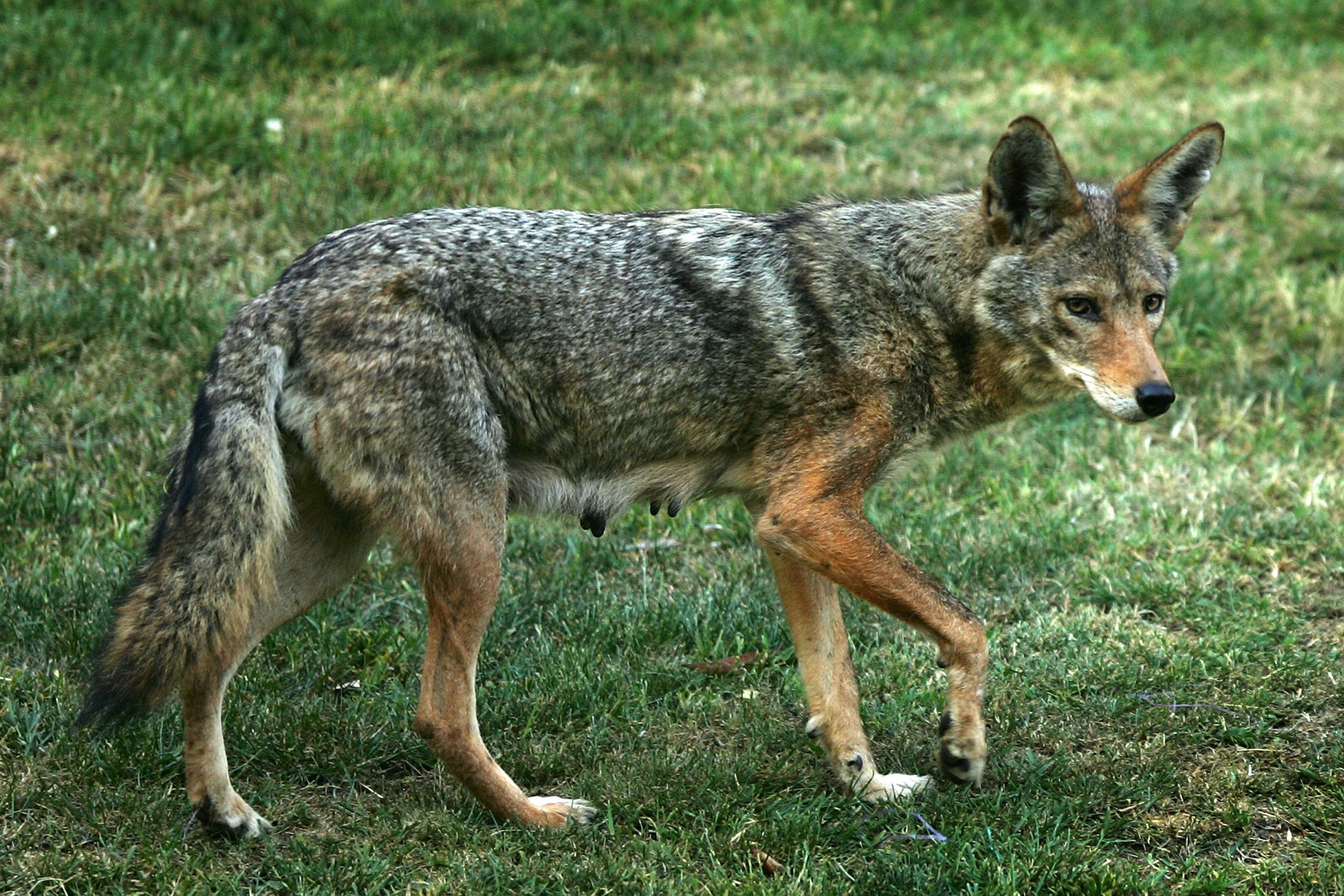
Several organizations are joining to sue a government agency that kills millions of animals each year.
The stated goal of the USDA Wildlife Services agency is to "resolve wildlife conflicts to allow people and wildlife to coexist." Sometimes that involves educating people or scaring birds away from airports. Other times, the agency employs people to kill wildlife, including 2,726,820 animals in 2016.
Typically at the behest of farmers and ranchers, Wildlife Services utilizes snares, cyanide traps, firearms and other tools to kill off wildlife that threatens food production, such as coyotes who attack sheep and calves.
But many environmental nonprofits deem this amount of lethal response outdated, cruel, indiscriminate and ineffective. In the hopes of getting Wildlife Services to analyze the environmental impact of killing this amount of wildlife, the groups are joining together to sue the agency.
The Lawsuit
"This war on wildlife can't be tolerated anymore," said Collette Adkins, senior attorney at The Center for Biological Diversity (CBD). "This idea of killing wildlife any time there is a conflict is just barbaric."
The Center for Biological Diversity has several active lawsuits against Wildlife Services in several different states, but one filed in federal court in Northern California is their biggest. The CBD is just one of the plaintiffs; other conservation and animal organizations include The Western Watershed Project, Animal Legal Defense Fund, Project Coyote/Earth Island Institute, Animal Welfare Institute and Wildearth Guardians. Their official complaint is that Wildlife Services violates the National Environmental Policy Act, which states that "all federal agencies are to prepare detailed statements assessing the environmental impact of and alternatives to major federal actions significantly affecting the environment."
Wildlife Services declined to comment on the ongoing litigation.
How Wildlife Services Works
When someone has a conflict with wildlife, such as a rancher whose lambs are being eaten by wolves, they can call Wildlife Services. The official methods of Wildlife Services states that "preference is given to nonlethal methods" of predator control.
Nonlethal methods of animal control include using guard dogs, llamas and donkeys; using loud sounds and lights to scare away predators; and birthing animals indoors and keeping them in barns at night. Wildlife Services can recommend those methods, but the person with the conflict must implement them.
By law, Wildlife Services can deploy fatal controls. They employ trappers to set snare traps and leg-hold traps, then kill the caught animal. Trappers may throw gas cartridges into dens to kill pups; give poison collars to livestock, which activate when predators bite them; or set baited cyanide bomb traps. When a carnivore tries to eat the bait on the trap, a fatal dose of cyanide shoots into its mouth.
The Science
Wildlife Services did conduct an environmental assessment of their lethal strategies in California—in 1997. The plaintiffs argue that changes in wildlife management during the past 20 years warrant a new, accurate assessment.
Several groups have conducted studies on whether lethal predator management is effective. A study published in Journal of Mammology, authored in part by the USDA's own National Wildlife Research Center, documented the effects of lethal predator management. The report concluded that areas in which animals were killed had a predation rate 3.5 times higher than nearby areas in which nonlethal methods were used. By protecting their sheep with dogs, fences and barns, landowners lost fewer animals than if they had simply killed the resident wolves. A review of existing literature, published in Frontiers in Ecology and the Environment, found that the effectiveness of lethal predator control is "a shot in the dark."
Why Sue Them Now?
Wildlife Services has been criticized by conservationists and animal welfare advocates for years. But recently, certain incidents have brought their work to the public eye.
"Just this year, there's been an increasing number of tragic incidents where wildlife services poisons have killed nontarget species," Adkins said. They include endangered wolves and domestic dogs. For example, earlier this year, a cyanide bomb laid by Wildlife Services killed a dog and almost killed his teenage owner.
Adkins estimates that the lawsuit will go to court next summer. "We just had no choice but to sue the agency to force a closer look at their methods."
Uncommon Knowledge
Newsweek is committed to challenging conventional wisdom and finding connections in the search for common ground.
Newsweek is committed to challenging conventional wisdom and finding connections in the search for common ground.
About the writer
Kristin is a science journalist in New York who has lived in DC, Boston, LA, and the SF Bay Area. ... Read more
To read how Newsweek uses AI as a newsroom tool, Click here.






